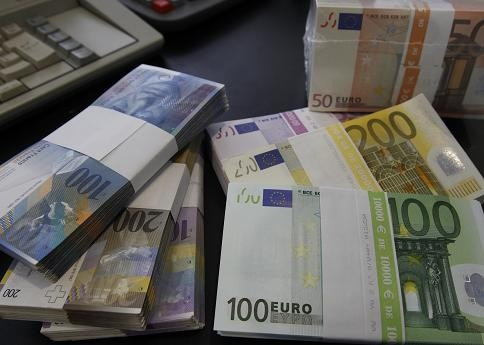Swiss franc keeps broad downtrend as SNB may intervene to curb Greek-related currency strength

The Swiss franc is keeping its broad downward trend ahead of crucial inflation data, but with Greek issues escalating, more central bank intervention may be expected in order to avert safe haven flows into the Swiss unit.
The Swiss authorities want their currency to remain weak to support the export economy and have been loud and clear about their willingness to intervene in the currency market to ensure the same.
Swiss National Bank President Thomas Jordan said last month that a failure of Greece and its creditors to reach an agreement over the country's debt could spur further buying of franc-denominated assets. He called uncertainty over the Greek debt issue "an unpleasant situation for Switzerland".
Now with the Greek people having voted "No" to the creditors' proposals, the European Union economic scenario has worsened. Market participants are waiting for further action and are busy assessing the impact of likely outcomes including the country's exit from the euro currency.
Euro falls
The euro fell sharply across the board in quick reaction to the weekend development in Greece but recouped most of the losses by around 3:00 GMT.
The EUR/CHF fell to 1.0356 from Friday's (3 July) close of 1.0452 but then pared almost entirely and traded as high as 1.0427. However, the franc weakened against the dollar to 0.9450 from 0.9407. The pair is, in fact, hovering near the 2 July one-month high of 0.9500.
The USD/CHF pair has been keeping an uptrend since early May when it hit a four-month low of 0.9072 and channel formed by the daily chart shows that as long as 0.92 holds, the pair has upside risks up to 0.9600 at least.
On the weekly chart, the uptrend dates back to December 2013 and even breaks through the sharp swing in January this year when the SNB took its EUR/CHF floor to 1.20.
Swiss consumer price inflation data for June will be out at 7:15 GMT. The consensus is for the reading to repeat its six-year low of -1.2% recorded in May on a year-on-year basis. The monthly rate is expected to fall to -0.1% from 0.2%.
The Swiss economy has been in deflation since late last year and the central bank has been keeping rates lower for shoring up growth and inflation in the country.
On 18 June, the SNB maintained its benchmark deposit rate at -0.75% and held its target range for the three-month Libor at -1.25% to -0.25%.
© Copyright IBTimes 2025. All rights reserved.





















